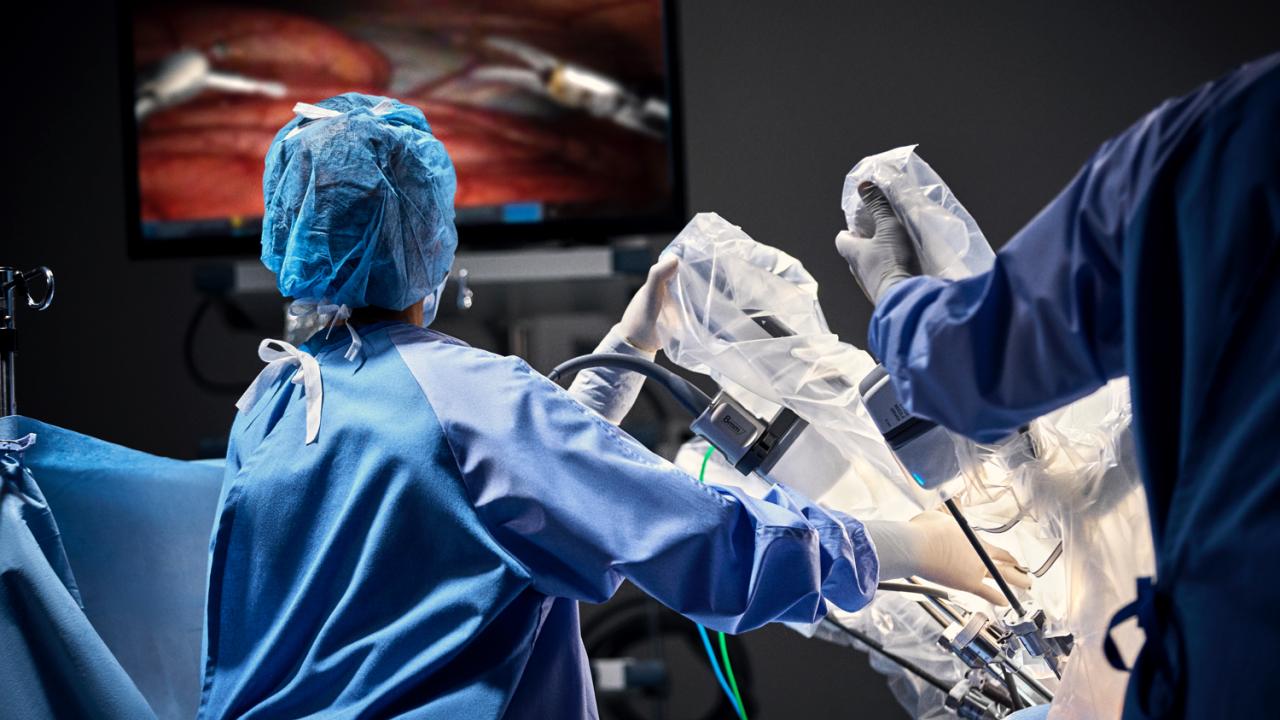
Image of Da Vinci surgical system ©2019 Intuitive Surgical Operations, Inc.
Gastrointestinal cancer surgeons at the UC San Francisco have performed the health system’s 15,000th robotically assisted minimally invasive surgery, making it the first University of California health center to reach this milestone. UCSF Health has the busiest robotic surgery program in the UC health system and is the leading academic medical institution for robotic surgeries in the western U.S.
The milestone surgery was a robotically assisted duodenal resection performed by Mohamed Adam, MD, a UCSF hepato-pancreato-biliary cancer surgeon who specializes in using minimally invasive robotic techniques. The patient was Elena Ceja, a 52-year-old woman with a gastrointestinal stromal tumor. Adam performed the surgery with the da Vinci Surgical System, in use for many robotic procedures at UCSF.
“With traditional open surgery, a resection of the third part of the duodenum can be very complicated and result in a prolonged hospital stay,” said Adam, assistant professor in UCSF’s Division of Hepatobiliary and Pancreatic Surgery. “The patient has difficulty eating and ends up staying in the hospital for several weeks because they need intravenous nutrition and time to heal from their incisions.”
Duodenal resection is a type of surgery for patients with cancer in their small intestine. While this procedure can be performed either traditionally or robotically, a robotic duodenal resection can be performed through a series of small incisions that result in less pain and scarring, a shorter recovery time and a lower risk of infection.
“Her tumor was close to the superior mesenteric artery and the superior mesenteric vein that feed and drain the bowel,” said Adam. “Accessing that area is very difficult and can be a very delicate surgery. Using the robot’s camera, I had a very clear view of the tumor, the colon and the surrounding tissue. It allowed me to make a smaller incision without putting retraction on the colon and tissue.”